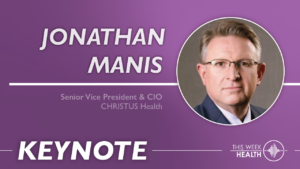

June 24, 2022

June 17, 2022
October 9, 2025
Salesforce has publicly rejected an extortion demand from the Scattered LAPSUS$ Hunters, a criminal group that claims to have stolen around 1 billion records from Salesforce customers, including major companies like Toyota and FedEx. This syndicate, identified by security researchers as a coalition of three previously known data-extortion groups, has exploited social engineering tactics to gain access to Salesforce portals through deceptive voice calls. The incident underscores the escalating threat of sophisticated cyberattacks in healthcare technology, emphasizing the need for robust security measures and heightened awareness among organizations using digital platforms to protect sensitive patient data. As Salesforce and its clients grapple with the repercussions of this breach, it highlights the critical importance of cybersecurity readiness in the healthcare sector.
Salesforce Defies Cybercriminals, Rejects Extortion After Massive Data Breach Ars Technica
October 9, 2025
Advocate Health in Charlotte, North Carolina, has secured a $100,000 grant from the American Nurses Credentialing Center to launch a virtual reality program aimed at training nurses to utilize ambient AI for electronic health record (EHR) documentation. This initiative comes in response to the challenge nurses face in verbalizing their assessments, which have traditionally been documented manually. By employing Microsoft's Project Nursing tool, which integrates ambient listening to automate EHR updates, the program seeks to enhance operational efficiency and reduce documentation time. This advancement could significantly streamline workflows in nursing, allowing professionals to focus more on patient care rather than administrative tasks.
Advocate Health Leverages VR and AI for Efficient Nurse EHR Training Becker's Hospital Review
October 9, 2025
Ballad Health, with 21 hospitals in Northeast Tennessee and Southwest Virginia, faced operational inefficiencies in its decentralized pharmacy model, which were worsened by workforce shortages during the COVID-19 pandemic. To optimize medication distribution, the health system introduced a central fill pharmacy model that leverages robotic automation for dispensing and packaging, significantly improving efficiency and reducing the manual labor burden on pharmacy staff. This new system not only enhances accuracy and safety through barcode verification but also addresses inventory management issues, contributing to better formulary compliance and minimizing drug shortages across hospitals. The shift highlights the importance of centralized pharmacy operations in improving patient care and resource management within healthcare settings.
Ballad Health Harnesses Robotics to Revolutionize Pharmacy Efficiency Healthcare IT News
October 9, 2025
The Digital Medicine Society (DiMe), in collaboration with Google and over 30 partners, has unveiled "The Playbook: Implementing AI in Healthcare," a comprehensive guide designed to assist U.S. healthcare systems in adopting and scaling artificial intelligence effectively. This seminal roadmap addresses the critical challenges that often hinder AI pilots, emphasizing the need for thoughtful implementation to ensure that AI technologies translate into improved patient outcomes and enhanced clinician experiences. By focusing on equitable and trustworthy practices, the Playbook aims to transform AI from experimental phases to impactful solutions, aligning with DiMe's vision for a sustainable healthcare future by 2030. Healthcare professionals can leverage this guidance to navigate the complexities of AI integration and maximize its potential benefits.
Revolutionizing Healthcare: DiMe and Google Unveil AI Implementation Playbook PR Newswire
October 9, 2025
Salesforce has publicly rejected an extortion demand from the Scattered LAPSUS$ Hunters, a criminal group that claims to have stolen around 1 billion records from Salesforce customers, including major companies like Toyota and FedEx. This syndicate, identified by security researchers as a coalition of three previously known data-extortion groups, has exploited social engineering tactics to gain access to Salesforce portals through deceptive voice calls. The incident underscores the escalating threat of sophisticated cyberattacks in healthcare technology, emphasizing the need for robust security measures and heightened awareness among organizations using digital platforms to protect sensitive patient data. As Salesforce and its clients grapple with the repercussions of this breach, it highlights the critical importance of cybersecurity readiness in the healthcare sector.
Salesforce Defies Cybercriminals, Rejects Extortion After Massive Data Breach Ars Technica
October 9, 2025
Advocate Health in Charlotte, North Carolina, has secured a $100,000 grant from the American Nurses Credentialing Center to launch a virtual reality program aimed at training nurses to utilize ambient AI for electronic health record (EHR) documentation. This initiative comes in response to the challenge nurses face in verbalizing their assessments, which have traditionally been documented manually. By employing Microsoft's Project Nursing tool, which integrates ambient listening to automate EHR updates, the program seeks to enhance operational efficiency and reduce documentation time. This advancement could significantly streamline workflows in nursing, allowing professionals to focus more on patient care rather than administrative tasks.
Advocate Health Leverages VR and AI for Efficient Nurse EHR Training Becker's Hospital Review
October 9, 2025
Ballad Health, with 21 hospitals in Northeast Tennessee and Southwest Virginia, faced operational inefficiencies in its decentralized pharmacy model, which were worsened by workforce shortages during the COVID-19 pandemic. To optimize medication distribution, the health system introduced a central fill pharmacy model that leverages robotic automation for dispensing and packaging, significantly improving efficiency and reducing the manual labor burden on pharmacy staff. This new system not only enhances accuracy and safety through barcode verification but also addresses inventory management issues, contributing to better formulary compliance and minimizing drug shortages across hospitals. The shift highlights the importance of centralized pharmacy operations in improving patient care and resource management within healthcare settings.
Ballad Health Harnesses Robotics to Revolutionize Pharmacy Efficiency Healthcare IT News
October 9, 2025
The Digital Medicine Society (DiMe), in collaboration with Google and over 30 partners, has unveiled "The Playbook: Implementing AI in Healthcare," a comprehensive guide designed to assist U.S. healthcare systems in adopting and scaling artificial intelligence effectively. This seminal roadmap addresses the critical challenges that often hinder AI pilots, emphasizing the need for thoughtful implementation to ensure that AI technologies translate into improved patient outcomes and enhanced clinician experiences. By focusing on equitable and trustworthy practices, the Playbook aims to transform AI from experimental phases to impactful solutions, aligning with DiMe's vision for a sustainable healthcare future by 2030. Healthcare professionals can leverage this guidance to navigate the complexities of AI integration and maximize its potential benefits.
Revolutionizing Healthcare: DiMe and Google Unveil AI Implementation Playbook PR Newswire

Questions about the Podcast?
Contact us with any questions, requests, or comments about the show. We love hearing your feedback.

© Copyright 2024 Health Lyrics All rights reserved